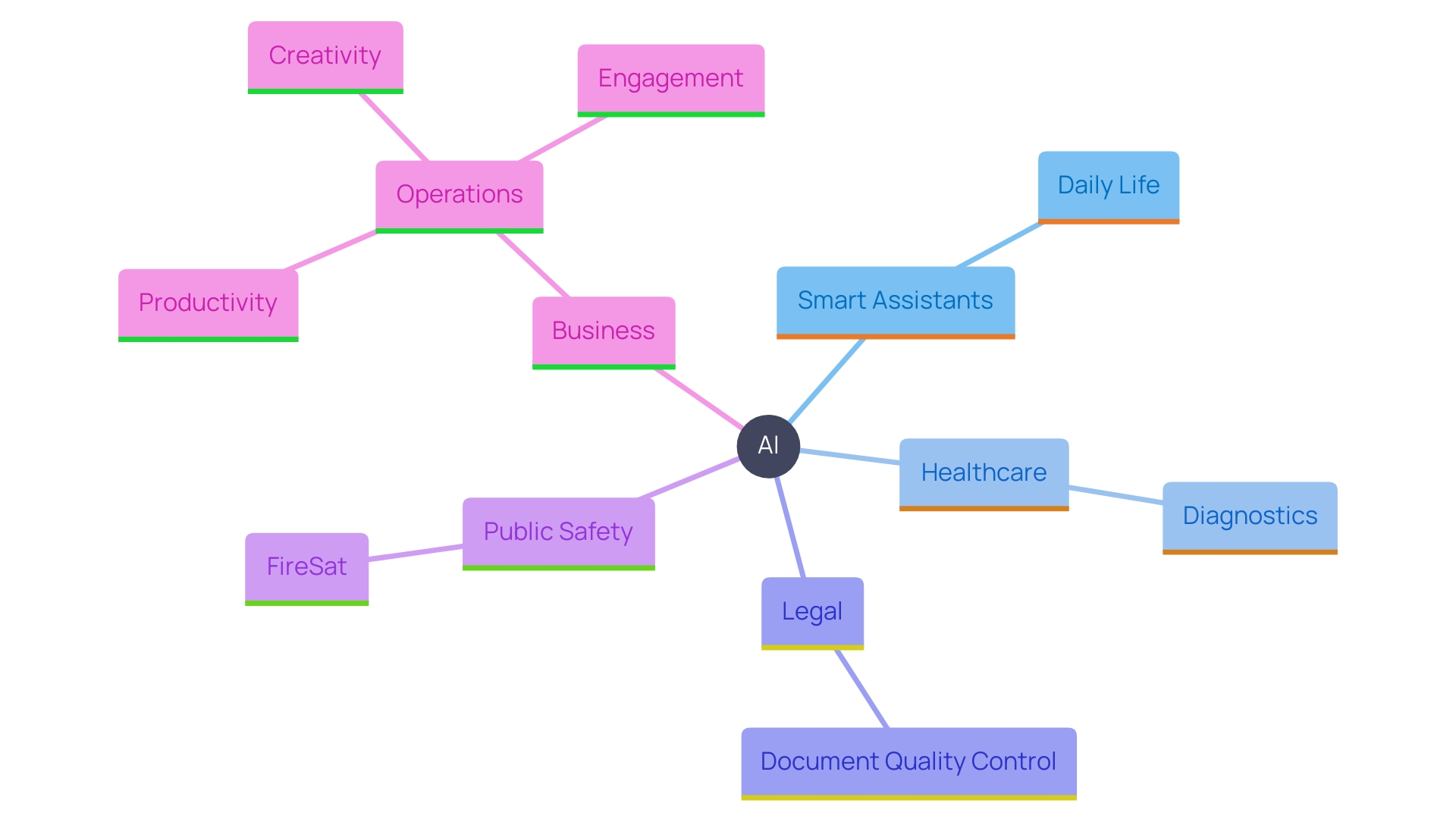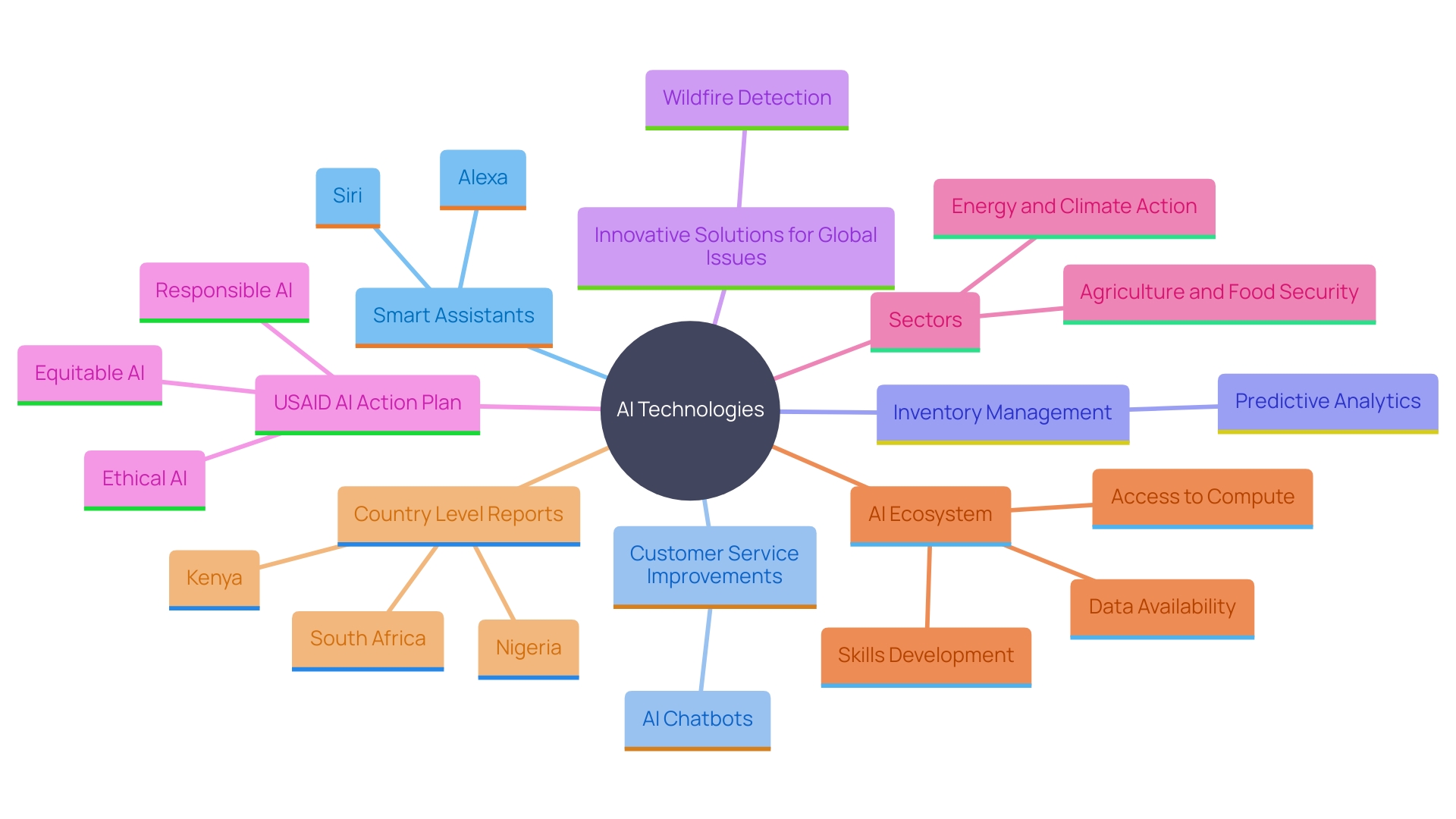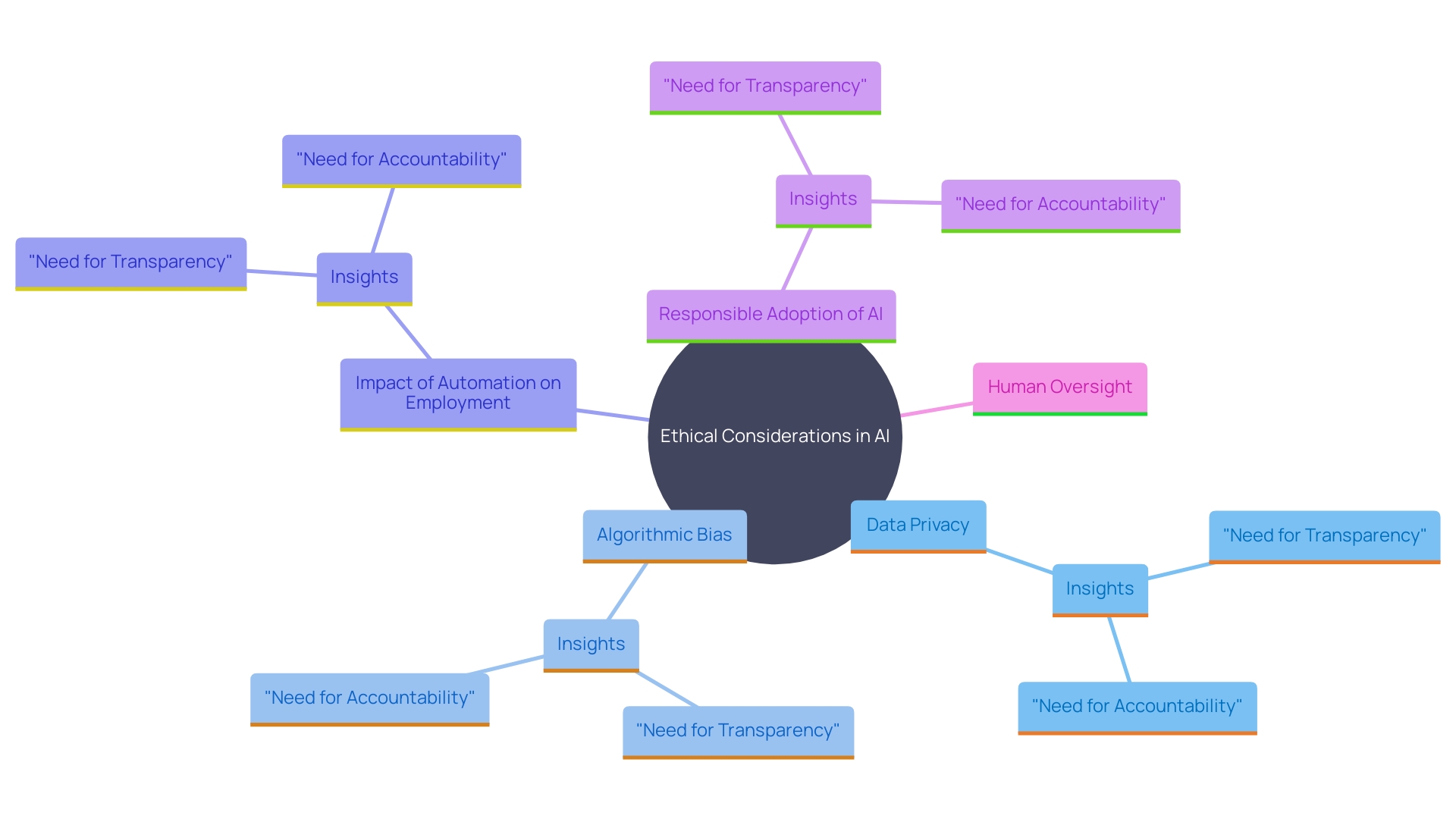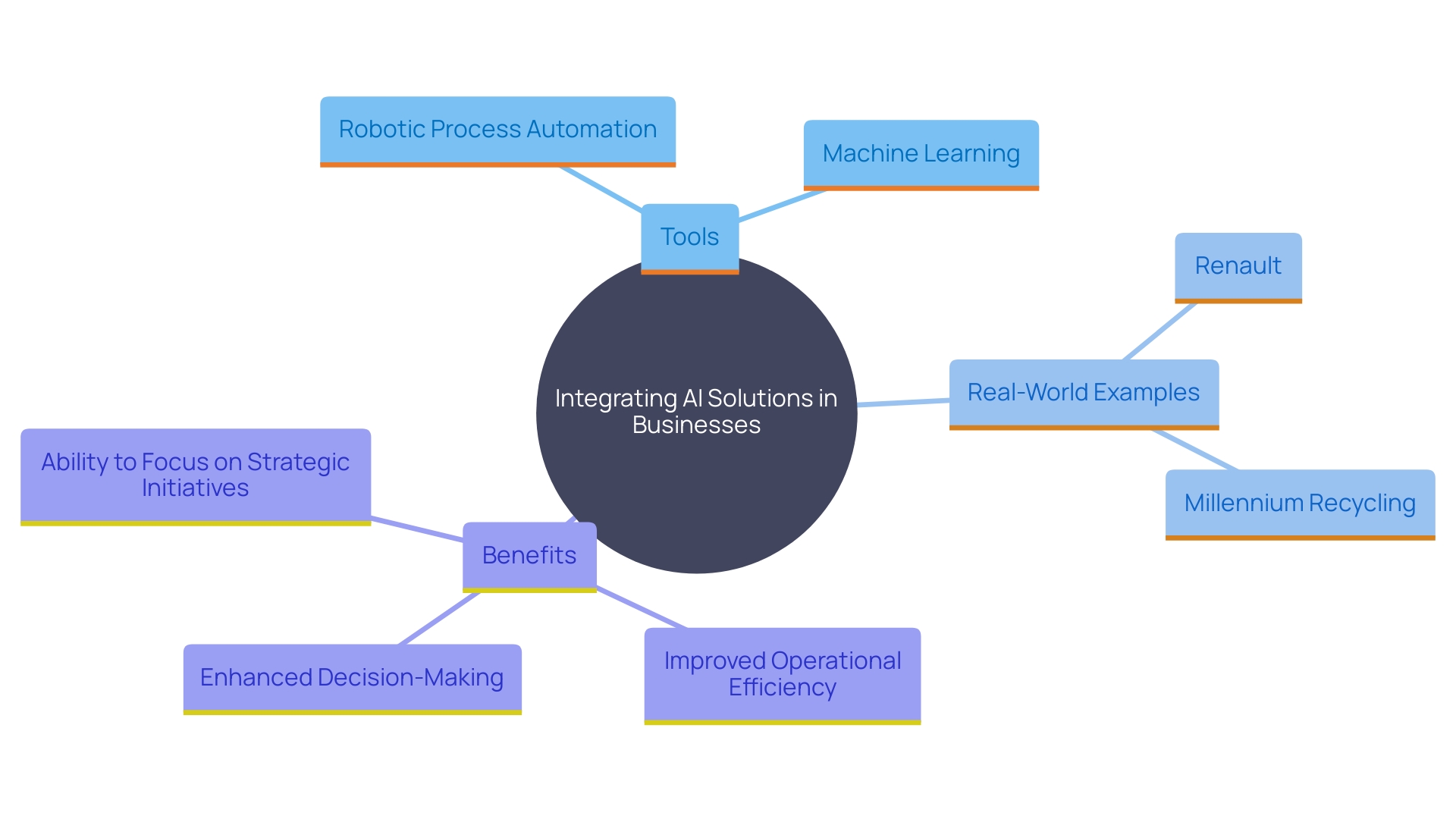Introduction
Artificial Intelligence (AI) has quietly revolutionized the way we live and work, embedding itself into everyday tasks and industries without the necessity for specialized skills. This widespread integration has made AI a powerful tool for both individuals and businesses, providing solutions that range from personal convenience to professional efficiency. Smart assistants like Alexa, Siri, and Google Assistant have become household staples, managing schedules, providing information, and controlling smart home devices with ease.
Beyond the home, AI’s transformative power is evident in sectors such as healthcare, where it aids in diagnosing diseases, and in legal fields, where it enhances document quality control. Public safety initiatives, like Google’s FireSat, leverage AI to track wildfires in real-time, demonstrating AI’s potential to solve significant societal issues. Furthermore, businesses are increasingly adopting AI in marketing, sales, and product development, reporting heightened productivity and innovation.
This article explores the multifaceted impact of AI on everyday life, dives into its applications across various industries, and addresses the ethical considerations that come with its rapid advancement.
Understanding AI Innovations Through Everyday AI
Artificial Intelligence (AI) has seamlessly woven itself into the fabric of our daily lives, transforming everyday activities and interactions without the need for specialized knowledge. This democratization has made AI accessible and impactful for both individuals and organizations. One of the most recognizable applications of AI is the use of smart assistants like Amazon’s Alexa, Apple’s Siri, Google Assistant, and Microsoft’s Cortana. These AI-powered assistants simplify tasks, manage schedules, provide information, and control smart home devices through natural language processing (NLP), making them incredibly user-friendly.
In the legal realm, AI ensures the quality control of documents and assists with summarization, showcasing its diverse applications across sectors. Ai’s integration into health care, for instance, aids in diagnosing diseases and recommending treatments, though public opinion remains divided on its impact on patient outcomes.
The potential of AI extends to public safety as well. Google’s FireSat initiative, which uses a constellation of satellites to detect and track wildfires, exemplifies how AI can address significant societal challenges. This real-time, high-resolution imagery can help emergency responders tackle fires more efficiently.
As AI keeps promoting advancements, its incorporation in business operations is significant, with the greatest application in marketing, sales, and product development. Companies embracing AI report enhanced productivity, creativity, and employee engagement. The increasing dependence on AI emphasizes its function in updating workflows and igniting unparalleled creativity.

The Impact of AI on Everyday Life: Exploring Various Applications
AI technologies have significantly reshaped various facets of everyday life. From smart assistants such as Siri and Alexa to recommendation algorithms utilized by Netflix and Amazon, these innovations streamline processes, enhance user experiences, and provide personalized content.
In business settings, AI-driven chatbots elevate customer service by handling initial identity verification and basic order inquiries, such as “Where is my order?” and “How can I check my order status?”. Predictive analytics has also revolutionized inventory management, allowing companies to optimize stock levels and reduce waste.
Furthermore, Ai’s capacity to automate repetitive duties such as information entry and report creation allows organizations to shift their personnel towards more strategic endeavors. For example, AI is already being used to cut down on wait times in call centers and grade certain types of school assignments. According to Jacqueline Ng Lane, an assistant professor at HBS, embracing the flexibility of the digital revolution is crucial: “The future of work is not just about where people sit. It’s about how AI and digital technologies are enabling a more efficient, innovative, and flexible work environment.”
Real-world analytics case studies have demonstrated that businesses can gain valuable insights into customer behavior, market trends, and operational efficiencies by examining their information. This empowers data-driven strategies, aiding in more effective resource allocation, product development, and marketing efforts.
AI is also at the forefront of addressing global challenges. For instance, Google Research has partnered with leaders in the fire community to build First, a constellation of satellites designed to detect and track wildfires as small as a classroom. This will provide high-resolution imagery updated globally every 20 minutes, helping authorities respond to fires more quickly and effectively.
By embedding AI into daily activities, users can save time, reduce errors, and make data-driven decisions, ultimately leading to a more productive and innovative future.

Future Directions in AI: Ethical Considerations and Emerging Trends
As AI rapidly advances, ethical considerations become paramount. Key issues such as data privacy, algorithmic bias, and the impact of automation on employment demand rigorous scrutiny. For instance, studies highlight the necessity of balancing state and corporate interests with individual rights in facial recognition technologies, emphasizing the importance of human rights and ethical regulations. Furthermore, the debate around autonomous weapons underscores the critical need for human oversight in life-and-death decisions, as highlighted by Pope Francis’ recent call for a ban on lethal autonomous weapons.
Emerging trends suggest the development of fairer AI systems that prioritize transparency and accountability. Renowned specialists, such as Dr. Swatee Singh, stress that the transformative capacity of AI must be utilized responsibly, guaranteeing that advancements benefit all parties involved. This responsible adoption is crucial as AI permeates various industries, influencing job dynamics and skill requirements. As Virginia Dignum aptly puts it, balancing creativity with social responsibility is essential in navigating AI’s complex landscape.
Organizations must stay informed about these trends and developments to responsibly manage AI integration. Conducting thorough impact assessments, as recommended by regulatory bodies, is vital to address potential ethical dilemmas and maintain trust. By prioritizing ethical considerations, businesses can ensure that AI advancements contribute positively to society.

How Everyday AI Helps Businesses Leverage AI Technologies
For businesses, integrating everyday AI solutions can significantly improve operational efficiency and decision-making. By employing tools like robotic process automation (RPA) and machine learning algorithms, companies can automate repetitive tasks, analyze large datasets for actionable insights, and enhance customer engagement. This not only streamlines processes but also frees up employees to focus on strategic initiatives that drive growth and innovation.
Renault’s journey is a testament to the transformative power of AI. Since 2017, Renault has allocated 10% of its IT budget to organizing information, resulting in the creation of a storage system where all of its supply chain information is kept. As Ludovic Doudard, General Manager of Process Engineering Supply Chain at Renault, notes, this structured data has enabled the creation of a control tower connected to partners such as Shippeo, allowing precise control over factory supplies. This has significantly enhanced operational efficiency and decision-making within Renault’s supply chain.
Millennium Recycling, another example, has also embraced AI to stay ahead of the industry. By continually researching and adapting to emerging technologies, Millennium has transformed into one of the most efficient material recovery facilities in the country. Their advanced single-stream process supports communities across the Upper Midwest, making recycling easy and accessible.
Generative AI tools like ChatGPT, Gemini, and Claude represent significant advancements in everyday AI use. These tools, akin to vast public libraries, empower organizations to solve complex problems and improve performance across various tasks. However, they require careful training and deployment, as they rely on data sets that can quickly become outdated and lack access to proprietary information.
Experts like Suzanne Reed from LBMC emphasize that AI will help identify and reduce inefficiencies and redundancies, making the workforce smarter without replacing the human touch. By focusing on low-complexity tasks with high ROI, businesses can achieve quick wins and set the stage for more advanced AI applications.

Conclusion
The integration of Artificial Intelligence (AI) into everyday life has fundamentally transformed both personal and professional landscapes. From smart assistants that streamline daily tasks to AI-driven innovations in healthcare and public safety, the applications of AI are vast and varied. These technologies not only enhance user experiences but also empower organizations to operate more efficiently and effectively.
In the business realm, AI’s ability to automate repetitive tasks and analyze data for actionable insights is revolutionizing operations. Companies leveraging AI report significant improvements in productivity and innovation, allowing employees to focus on strategic initiatives that drive growth. Real-world examples, such as Renault’s structured data approach and Millennium Recycling’s adoption of AI technologies, illustrate the tangible benefits of embracing AI solutions.
However, as AI continues to evolve, it brings forth ethical considerations that must be addressed. Issues such as data privacy, algorithmic bias, and the implications of automation on employment require careful scrutiny and responsible management. Organizations are encouraged to conduct thorough impact assessments and prioritize ethical practices in their AI integration strategies.
By harnessing the power of AI while remaining vigilant about its societal implications, businesses can not only enhance their operational efficiencies but also contribute positively to the communities they serve. The future of AI holds immense potential, and with responsible implementation, it can pave the way for a more innovative and productive world.

